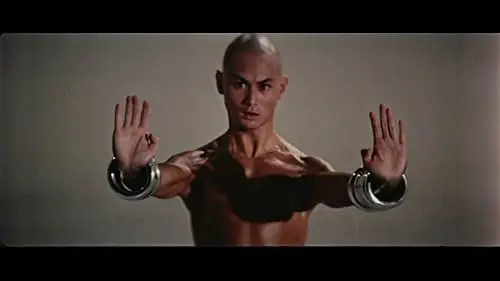Step into the high-octane world of 70’s kung fu movies, where martial arts masters leaped across the silver screen with gravity-defying stunts and jaw-dropping combat sequences. These iconic films have left an indelible mark on modern cinema, shaping the way action and fight scenes are choreographed and filmed today. Let’s delve deep into the captivating influence of 70’s kung fu movies on the evolution of the cinematic experience.
Exploring the Roots of 70’s Kung Fu Cinema
The 1970s marked a golden era for kung fu cinema, with legendary stars like Bruce Lee and Jackie Chan paving the way for a new wave of martial arts films that captured the imagination of audiences worldwide. These films not only showcased incredible physical prowess but also delved into themes of honor, revenge, and redemption, resonating with viewers on a deeper level.
Bruce Lee, often hailed as the pioneer of the genre, brought a level of intensity and charisma to his roles that set him apart from his contemporaries. His iconic film ‘Enter the Dragon’ not only elevated the standards of fight choreography but also introduced a new level of authenticity to martial arts representation on screen.
The success of Bruce Lee’s films opened the floodgates for a surge of kung fu movies, each showcasing different styles and narratives. From Shaolin monks mastering the art of combat to revenge-driven tales of honor and betrayal, 70’s kung fu cinema offered a diverse palette of storytelling against the backdrop of exhilarating martial arts sequences.
It was during this era that the fusion of traditional Eastern martial arts techniques with Western filmmaking styles created a unique cinematic language that continues to influence action filmmakers to this day. The raw energy and skill displayed by kung fu practitioners on screen captivated audiences and set a new standard for fight choreography in the film industry.
Impact of Martial Arts Legends on Film Culture
The martial arts legends of the 70’s not only defined a genre but also laid the foundation for the evolution of action cinema. Bruce Lee’s philosophy of martial arts as not just physical combat but a way of life resonated deeply with audiences, inspiring a new generation of filmmakers to explore the spiritual and philosophical dimensions of combat.
Jackie Chan, known for his comedic yet acrobatic fighting style, brought a sense of playfulness and innovation to the genre. His willingness to perform his own stunts and combine physical comedy with martial arts prowess set him apart as a true pioneer in action cinema, influencing a slew of filmmakers to prioritize authenticity and creativity in fight scenes.
The impact of these martial arts luminaries extended beyond the confines of film, permeating pop culture and redefining the way audiences perceived action heroes. Their dedication to their craft and commitment to pushing the boundaries of physicality and storytelling left an enduring legacy that continues to inspire a new era of action cinema.
Evolution of Fight Choreography in Modern Films
The influence of 70’s kung fu movies can be seen in the evolution of fight choreography in modern films, where intricate sequences and dynamic camera work have become the norm. Filmmakers today draw inspiration from the fluid movements and intense duels of classic kung fu cinema, infusing contemporary action sequences with a touch of martial arts finesse.
With advancements in technology and a deeper understanding of martial arts principles, fight choreography in modern cinema has reached new heights of realism and spectacle. The marriage of practical stunts with visual effects allows filmmakers to create breathtaking action set pieces that pay homage to the intensity and skill displayed in 70’s kung fu classics.
Furthermore, the appreciation for diverse fighting styles and cultural martial arts traditions has enriched the tapestry of on-screen combat, offering audiences a more nuanced and inclusive portrayal of hand-to-hand combat. The legacy of 70’s kung fu movies lives on in the meticulous attention to detail and authenticity that modern filmmakers bring to fight scenes, ensuring that the spirit of martial arts excellence endures in the heart of contemporary cinema.
A Legendary Legacy Continues
As we reflect on the impact of 70’s kung fu movies on modern cinema, it becomes clear that these legendary films have not just entertained audiences, but revolutionized the way action sequences are crafted and portrayed on screen. Their timeless appeal continues to inspire filmmakers to push the boundaries of fight choreography and storytelling, ensuring that the spirit of martial arts excellence lives on in the heart of cinematic artistry.


